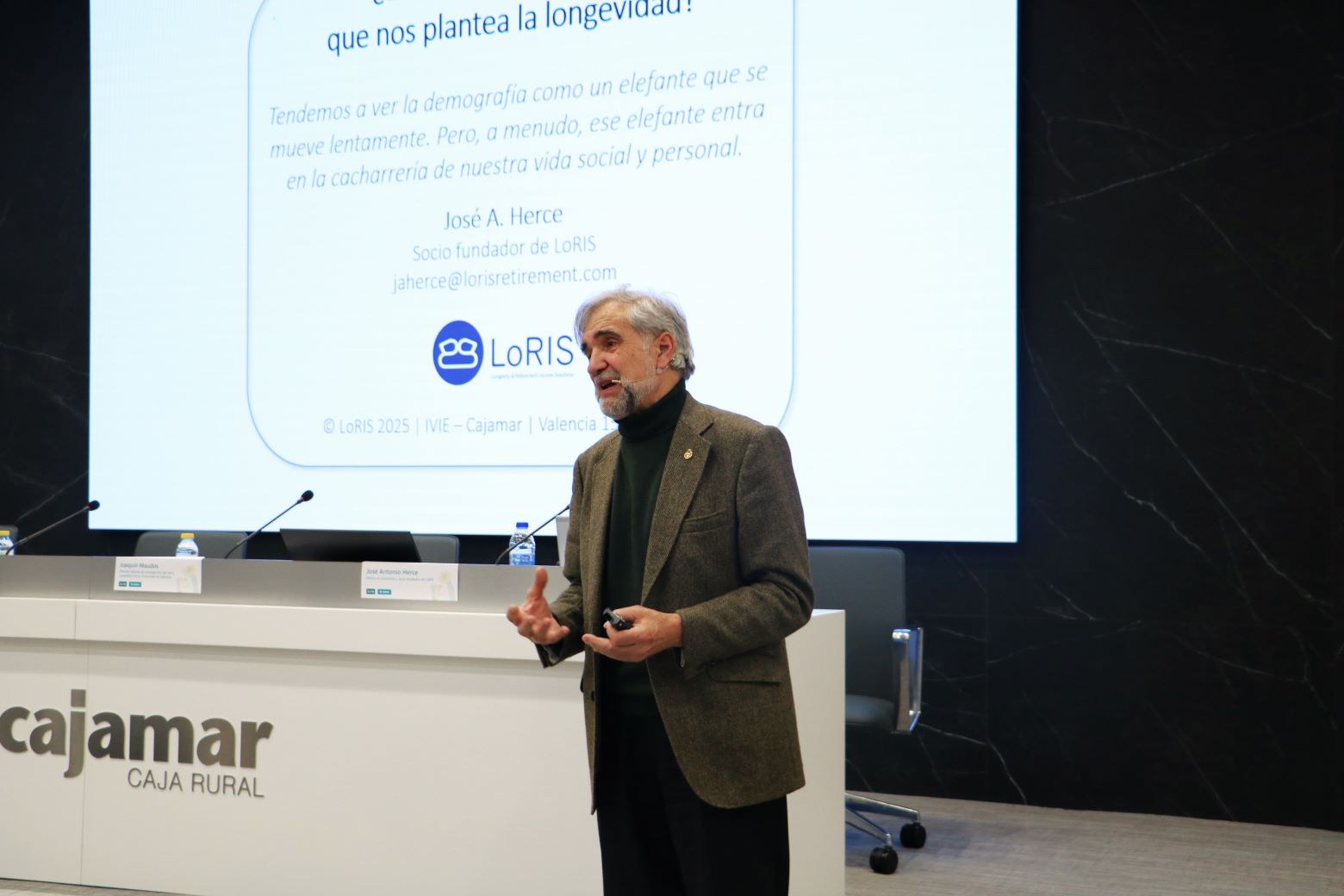Esta web utiliza cookies para que podamos ofrecerte la mejor experiencia de usuario posible. La información de las cookies se almacena en tu navegador y realiza funciones tales como reconocerte cuando vuelves a nuestra web o ayudar a nuestro equipo a comprender qué secciones de la web encuentras más interesantes y útiles.

José Antonio Herce: “We must link retirement age and pension calculations to life expectancy”
El economista experto en envejecimiento José Antonio Herce analizó las implicaciones sociales, económicas y sanitarias de la longevidad creciente en España en la segunda conferencia del ciclo organizado por Cajamar y el Ivie Los retos estructurales de la economía española
“Longevity is not only a challenge for the economy but for society as a whole.” With this statement, José Antonio Herce, PhD in Economics and founding partner of LoRIS, opened his lecture “¿Entendemos los retos que nos plantea la longevidad?” (Do we understand the challenges posed by longevity?) in the series of conferences Los retos estructurales de la economía española (Structural challenges facing the Spanish economy), organized by Cajamar and the Ivie in Valencia. According to Herce, we tend to resist change, but increased longevity is a structural shift that requires adjustments in both personal habits and public policies to ensure quality of life for older adults.
Ignacio Gurrea, Business Director of Cajamar’s Regional Office in Valencia, and Joaquín Maudos, Ivie Research Deputy Director and Professor at the University of Valencia, opened the third session of the Cajamar-Ivie conference series. The program consisted of six in-person conferences, free to attend with prior registration, held at Cajamar’s headquarters in Valencia during the first half of the year.
Herce noted that life expectancy in Spain has risen from 75.4 years in 2008 to 83.1 years in 2023. Currently, people aged 65 and over account for 20% of the population, a figure expected to reach 30% within 25 years. For every person over 65, there are now 3.16 inhabitants aged 16 to 64—a ratio projected to fall to 1.89 in 2050, according to demographic estimates.
Population aging is not just a matter of pensions or healthcare; it represents a profound structural change to which society has yet to adapt. “It is in our hands to adopt healthier lifestyles. In addition, the public health system must adapt to a new demographic reality.” Herce stated that healthcare management needs improvement, but he emphasized that the greatest challenge lies in long-term care because caring for dependent people is very expensive. He added, “We are short of 100,000 nursing home places and 30 billion a year to cover dependency needs, and we don’t know where to find it.”
For Herce, the situation is particularly critical in pensions. “We live well beyond 65, a retirement age that was set when life expectancy was much lower. The age of 65 in 1900 is biometrically equivalent to 81 and 92 today.” Meanwhile, the annual deficit of Spain’s pension system exceeds €50 billion, and a third of new retirees still retire at age 65. According to Herce, the solution does not lie in increasing the birth rate or relying solely on immigration, but rather in a profound reform of the system. “It is essential to link the retirement age and pension calculations to current life expectancy to overcome the 67-year barrier.”


